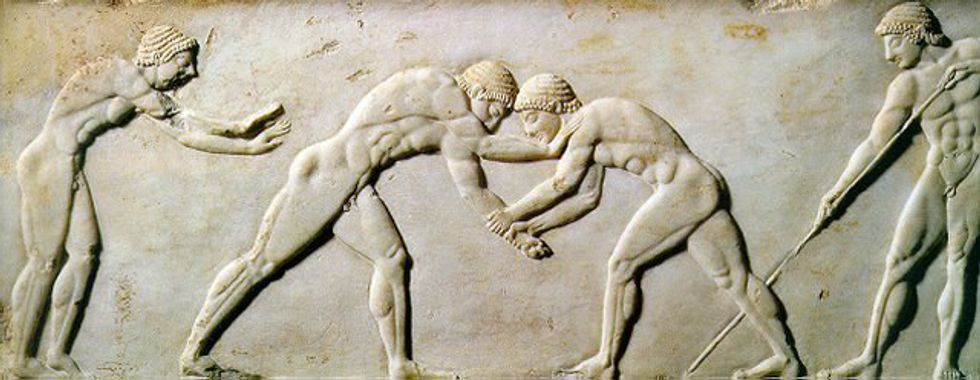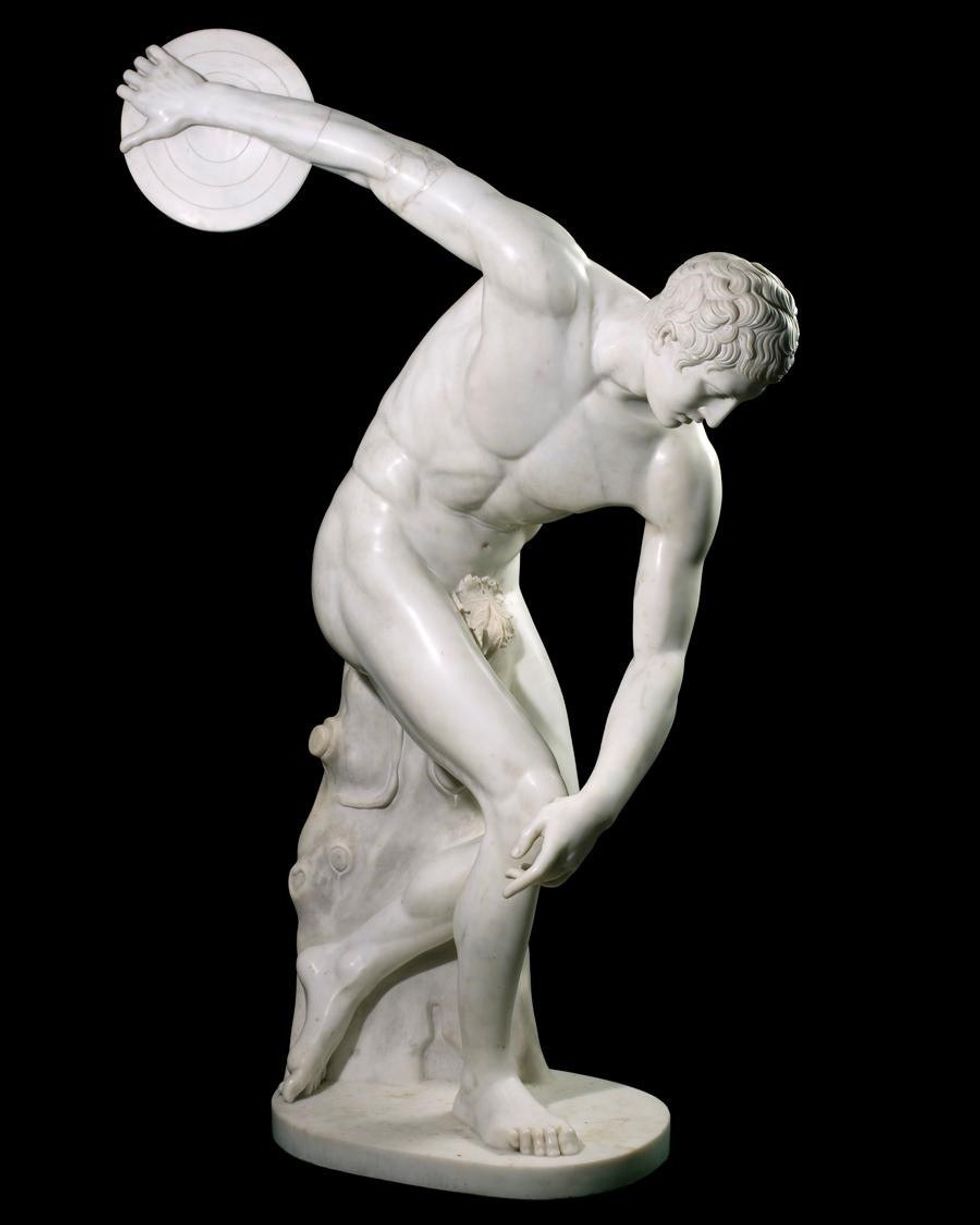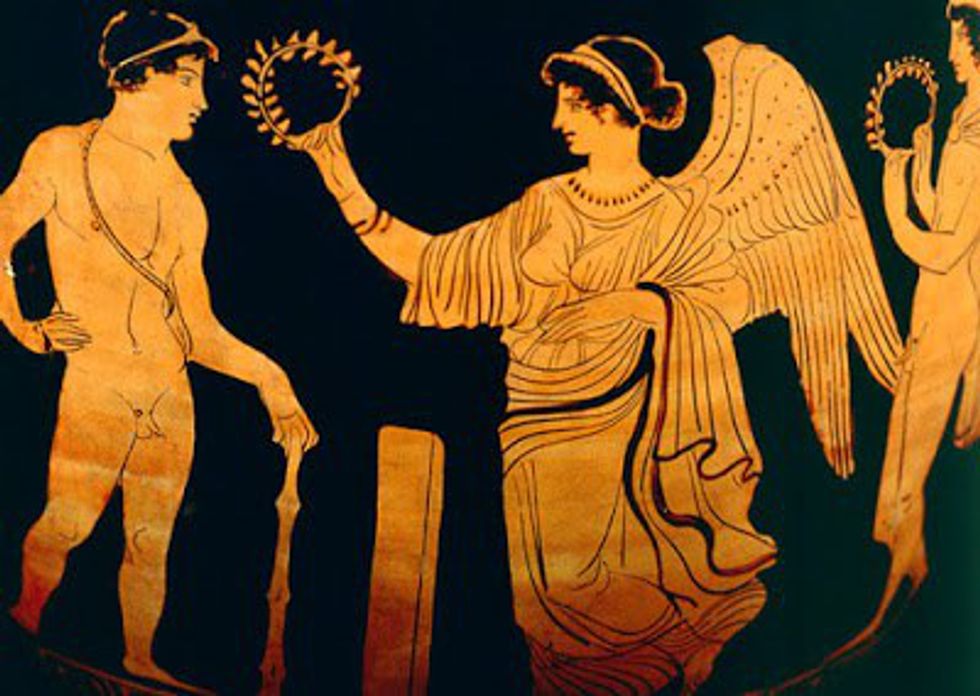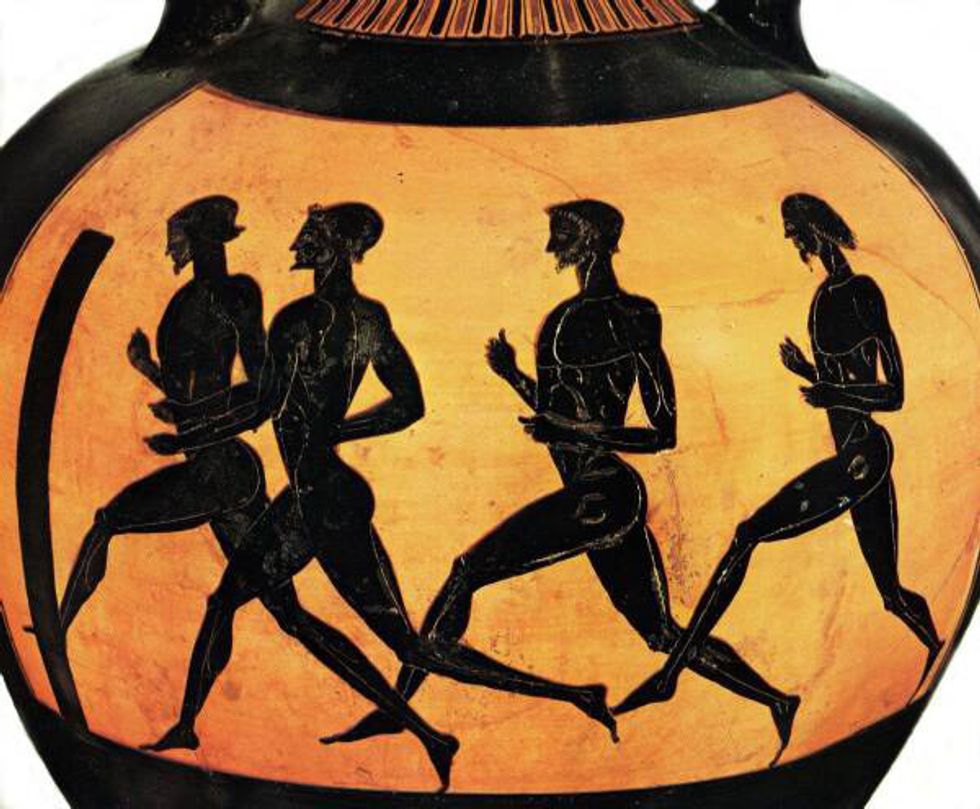The Ancient Greeks were always about the ideal-- the ideal man, the ideal woman, the ideal body, and the ideal mind. The Greeks were a people that strove for perfection, determined to be the best that their was. Ambition to reach that ideal was the motivation for every day competitions of the economy, politics or even war.
In a way, the Ancient Olympic Games was a competition for the title of being the ideal, at least through athletics. The Olympic Games in Ancient Greece characterized the Greek values, one of the most important of which is "the free individual who aspires to achieve excellence through an agon (struggle, or contest) governed by just laws." Individuality, hard work, and eventual success were the values of the Ancient Greeks shown through the participation in the Olympic games-- over even battles, wars, political disputes or economic breakdowns.
This idea begs the question: is that what the Olympics are still about? Today, do the Olympics put aside politics, or do they heighten them? And are the Olympics still a call for peace as they were in the ancient days?
To answer this, first we have to know the facts of the original Olympic games.
The ancient Olympic games originated in Olympia in 776 B.C., during the times of Ancient Greece as a religious festival to honor Zeus and lasted until 393 A.D. 776 B.C. was the date where an Olympic winner was recorded: Koroibos, a cook from Elis, became the world's first Olympian after completing a 200 meter foot race called a stadion, or a stade. This stadion was the only competition. The Olympics were a five day festival held in honor of Zeus every four years.
Only free men could participate in the games, and married women and slaves were threatened by execution for even watching them (though women did have their own competition every four years as well, and additionally could sponsor events, teams, and athletes). Like today's Olympics, the participants came from all over the known world at the time to compete. All participants also competed in the nude to promote respect for each other and the laws that were in place.
During the Olympic gaming period, all wars were suspended for the duration of the competition. In fact, ekecheiria (the ceasing of all hostilities for up to three months), was proclaimed by officials months before the beginning of the games to assure all participants safe travels to Olympia to compete.
Eventually, in the 8th and 7th centuries, wrestling, boxing, equestrian events and the pentathlon were all added as events in addition to the sprinting.
Discus Thrower by Discobolus
The games were a big deal back then like they are today-- thousands of people fled to Olympia each year in order to watch. There were so many people that they couldn't all even watch the games because the stadium reached maximum capacity.
But within all of this, there's only one real point to the Olympics, then and now: winning. Back then, winners didn't receive any medals, but instead an olive branch wreath, and sometimes a wealthy sum of money. At the ceremony concluding the the Olympic Games, competitors that won three events were able to have a statue created after them. The winners were honored in Olympia and brought honor to their own origin cities; upon their return home, cities even symbolically tore down a defensive wall in welcoming them.
And that's how things were for a really, really long time. In 393 A. D., however, following the conquest of the Greek Empire by the Romans and the subsequent rise in popularity of Christianity, Emperor Theodosius I stopped the games entirely due to it being a "pagan event," due to the original worship of Zeus intended through the Olympics. It wasn't until 1896 that the Olympics were brought back-- essentially 1500 years later-- in Athens, Greece.
So, what does this all mean really?
The Olympics were originally built on a series of contradictions: comradery within competition; peace within wartime; and success within failure. They were about the ideal society, where all these attributes could coexist in harmony, if only for five days. They were about following the rules and living noble lives, becoming noble winners and honoring their own accomplishments, while being honored for them. They were about a recognition of talent, and respect for that talent by everyone-- even the competition. They were about individual freedom, and what can be mastered with that freedom.
The Olympics were about what humanity could accomplish in its most free, most peaceful state.
But is that what they've become today?
As a global population, we still love the Olympics. We all tune in every two years to watch it, whether it's summer or winter, and feel that unmistakable national pride when our country wins. Yet, there seems to be something missing. It could be the drug allegations worldwide and the subsequent banning of people from participating, it could be the rather unfriendly competition that is seen before and after certain races, or maybe even something else that's hard to define.
The Olympics today are still about honoring winners, and it's still about competition, but the peaceful element seems to be lacking. And to be fair, that might be because of all the violence in the world on a daily basis now, and maybe it isn't exactly pragmatic to just cease global wars for these two weeks, but it's something to think about. They're even more inclusive than they were then, as women can now compete in many events (though still not as many as men).
Are today's Olympics what the Ancient Greek's intended, and does it have to be? Maybe, maybe not. The Olympics are still meant to promote peace between nations, as symbolized by the five rings, but our culture has made a palpable shift into something that's more materialistic and an encouragement for bragging rights than the honor and the humility that the original games were.
In 1500 years, we'll have to see what that says about us as a culture.

























